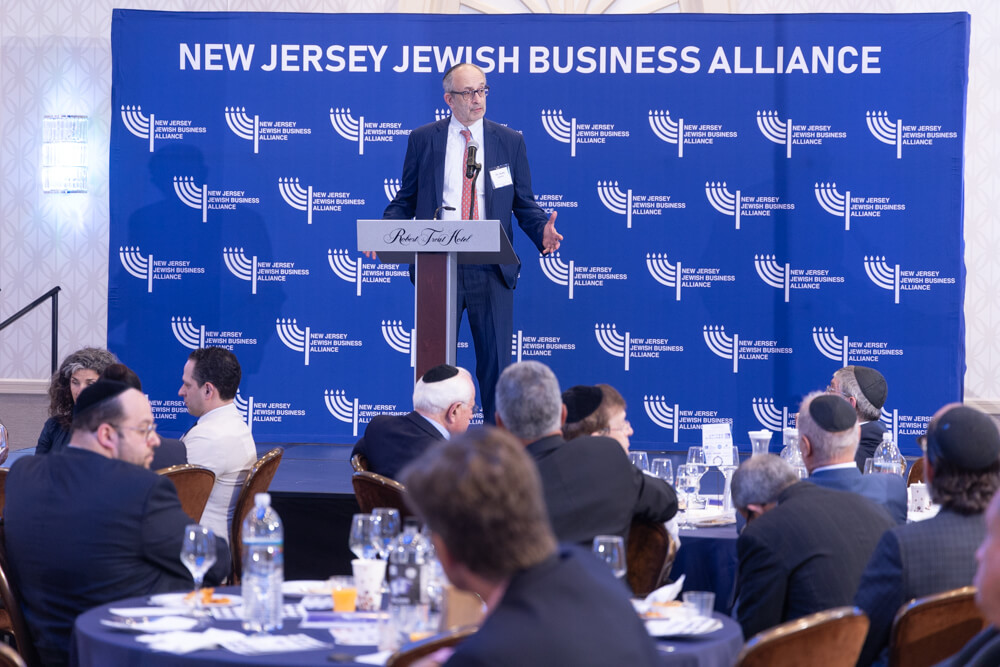"Antisemitism Never Disappeared, It Just Became Socially Unacceptable"
Touro President Dr. Alan Kadish Delivers Keynote Address on Antisemitism at New Jersey Jewish Business Alliance Annual Luncheon

There are a variety of reasons for the massive increase in antisemitic incidents on college campuses since the October 7 massacres. But at its heart, perhaps the cause was our allowing ourselves to believe that such things were past history.
“Some people thought that antisemitism was gone,” according to Dr. Alan Kadish, president of Touro University. “But antisemitism has been around for a couple of thousand years, and it never disappeared—it just became socially unacceptable for a while.”
Dr. Kadish’s comments came at the 10th annual Legislative Business Luncheon of the New Jersey Jewish Business Alliance on August 6, where he served as keynote speaker. He told the attendees, which included New Jersey Congressman Tom Kean and New Jersey Congresswoman Mikie Sherrill, that college professors, as well as high school and even elementary school teachers, have promulgated the view that “Israel and Jews are somehow part of the oppressor class.”
“But that ignores the long history of antisemitism,” he said. “In this dichotomy of oppressor and oppressed, we’ve been labeled oppressors without much thought to context or history. This intersectionality idea that you have to be on the right side of the oppressed, whether it turns out to be true or not, has led to some students reacting instinctively and opposing Israel and socially ostracizing Jews.”
The luncheon was held at the Robert Treat Hotel in Newark, N.J., and also included Ilan Kaufthal, chairman of East Wind Advisors, and Kevin O’Toole, the chairman of the Port Authority of New York and New Jersey.
Noting a few startling statistics—including the 1,826 reported antisemitic incidents on campus between Oct. 7 and July, according to Hillel International, a 700% increase, and 306 antisemitic incidents in the 30 days following the attacks; since 2019, when Hillel began tracking antisemitic incidents on campus, they had never recorded more than 50 in a 30-day span—Dr. Kadish said that the crisis on college campuses is very real.
“It’s not just that many Jewish students felt unsafe on campus last year, they were unsafe.”
Considering these hostile environments for Jewish students throughout the U.S., he said he hopes Touro will serve as a model for universities that seek to provide them with a safe space and send a message to other schools that there are consequences to enabling antisemitism to grow and thrive. Since Oct. 7, Touro has established the Safe Campus Scholarship for undergraduate students who wish to transfer from colleges where they have encountered antisemitism, reducing their tuition by 25%. In addition, a cohort of students transferred to graduate programs. Dr. Kadish estimates that hundreds of students have taken advantage of Touro’s new transfer policies, including from Ivy League colleges.
“I am not suggesting that Touro is the only solution or safe school, but we plan to continue to set an example with our dedication to inclusiveness,” he said. “Now all schools need to address the problem of antisemitism on campus, as they would any form of racism.”
/prod01/channel_38/media/redesign/assets/images/background-images/locations-background.jpg)
